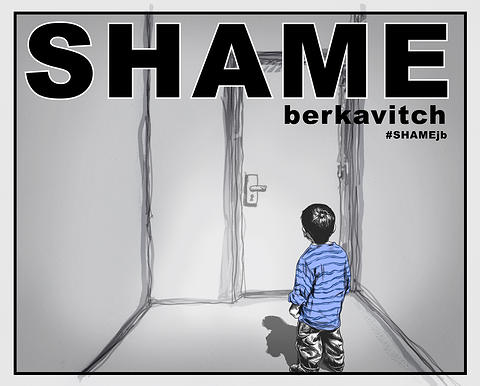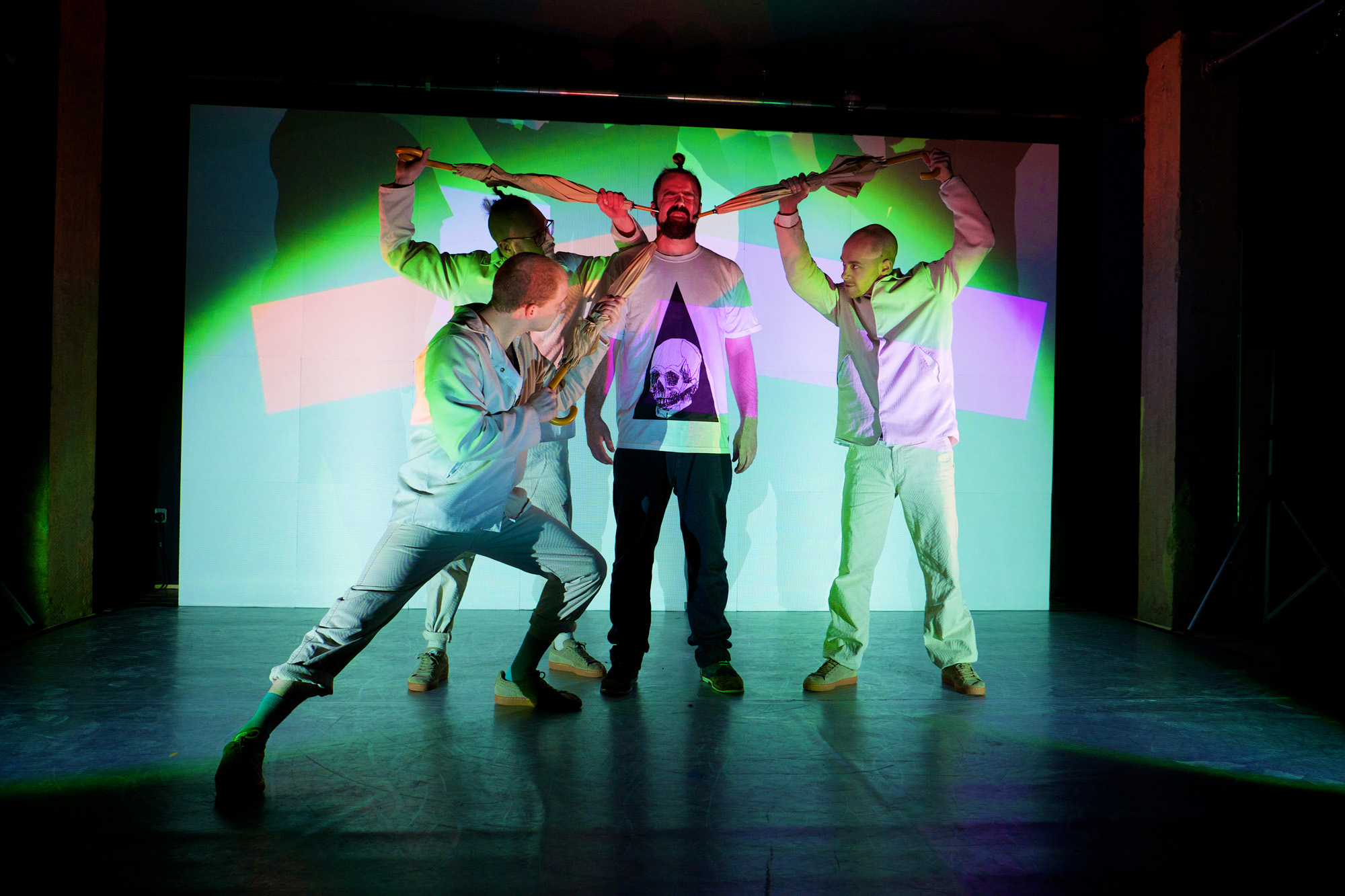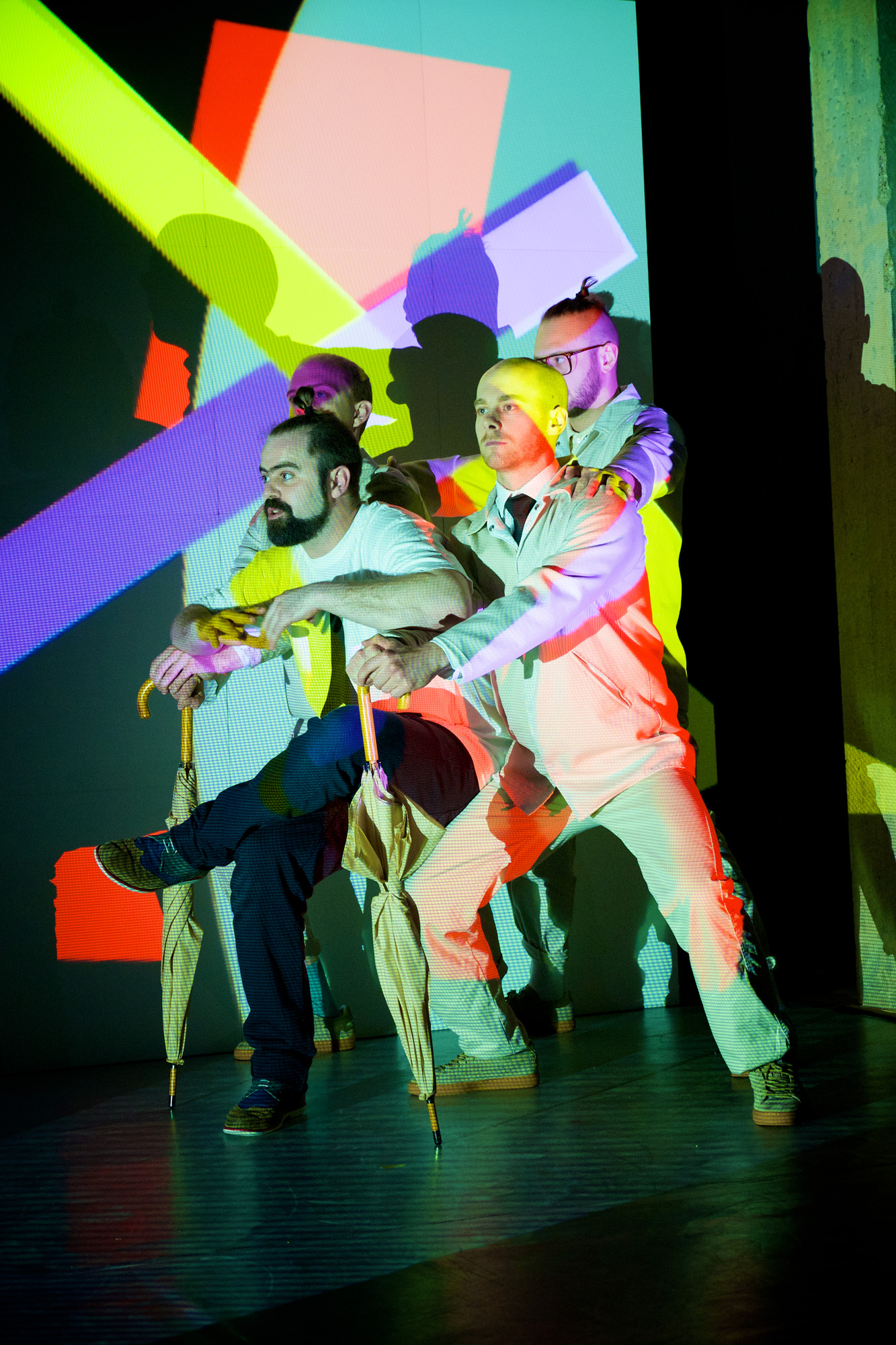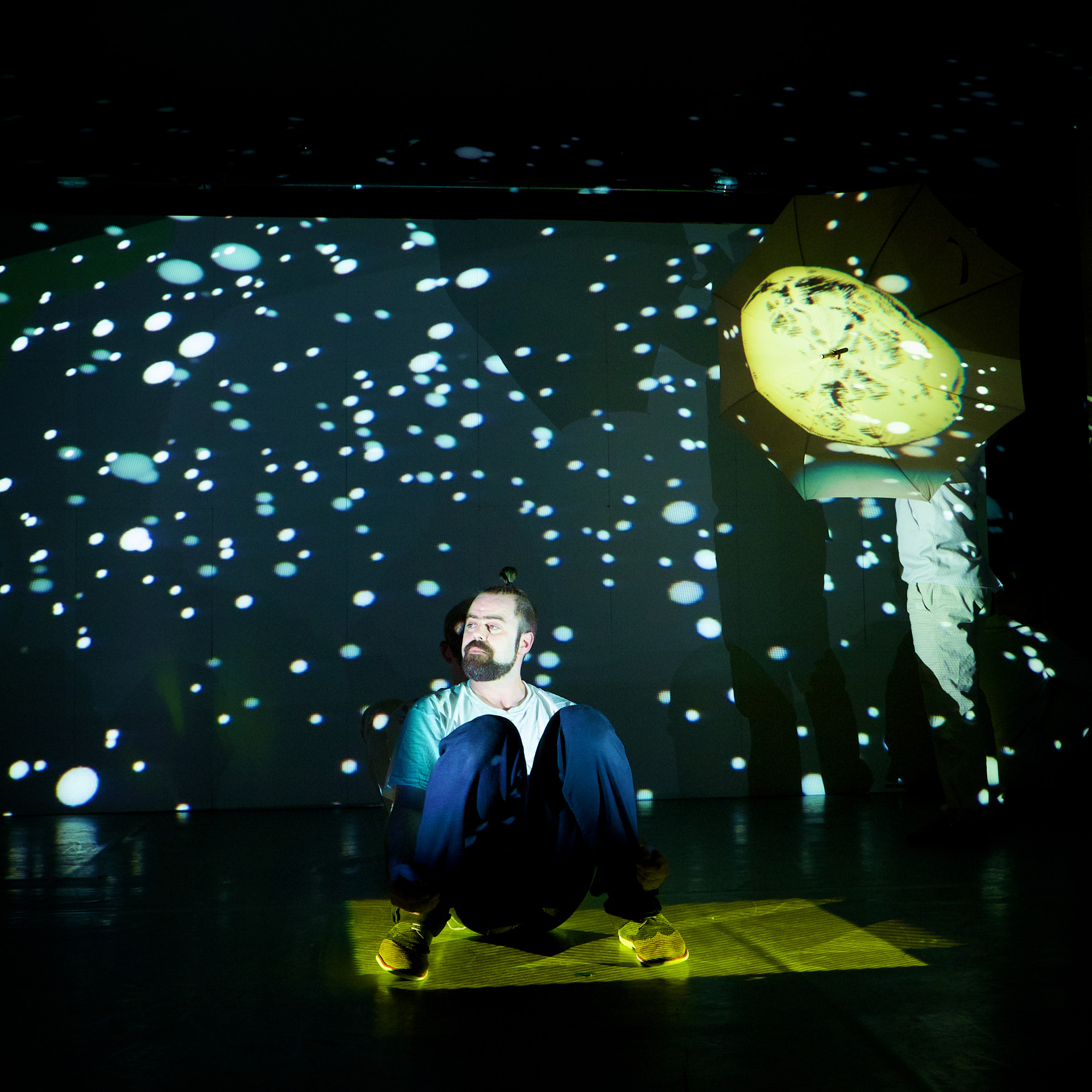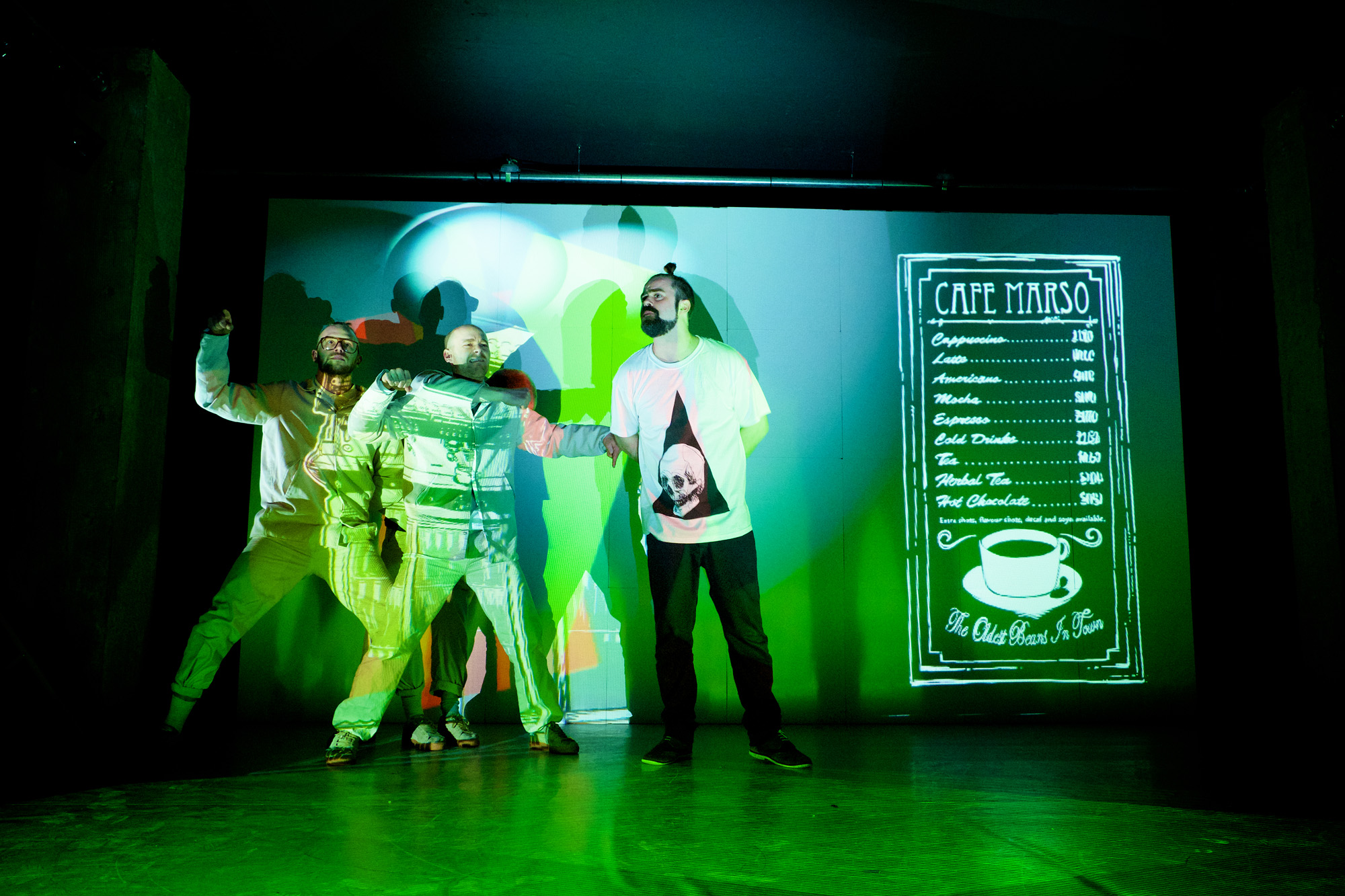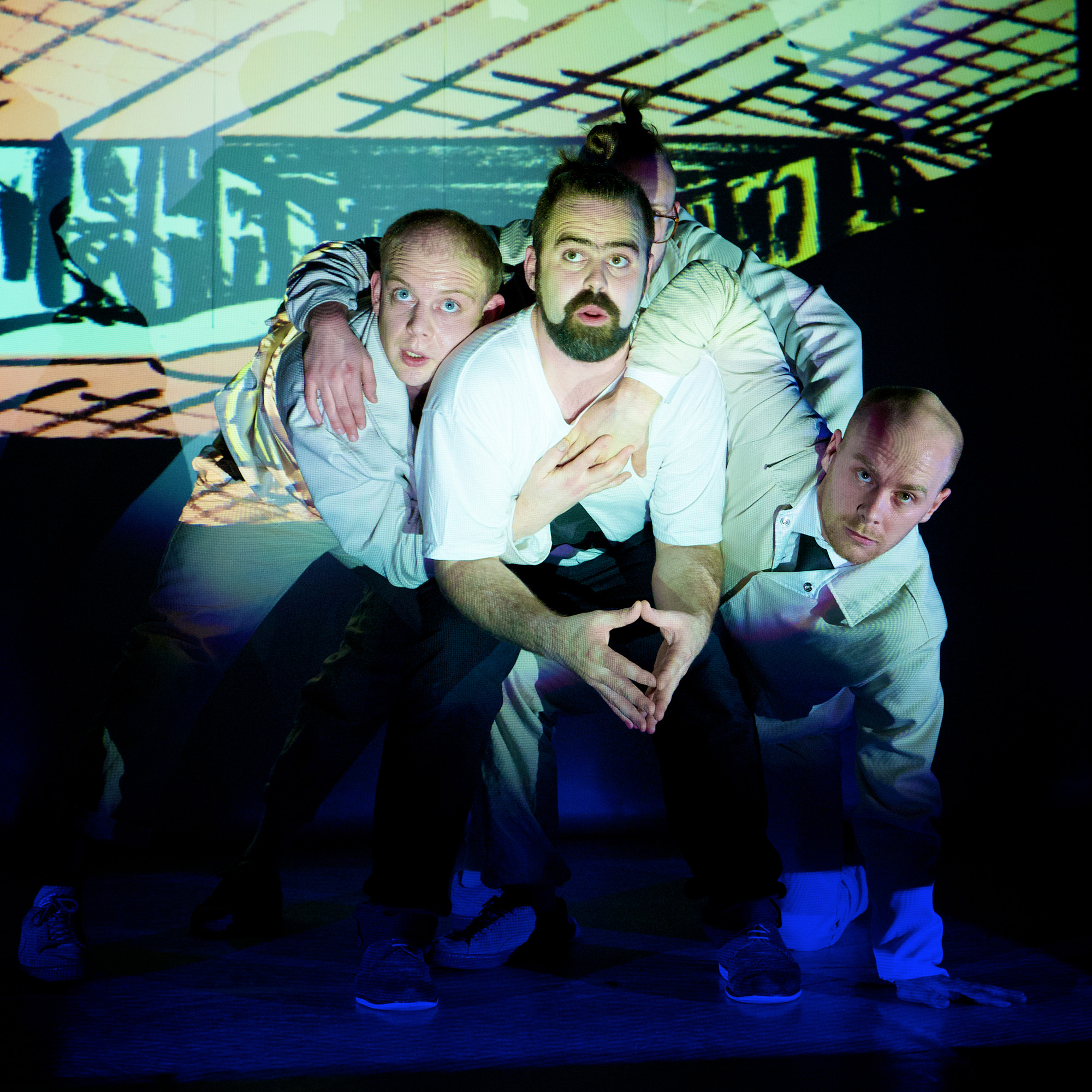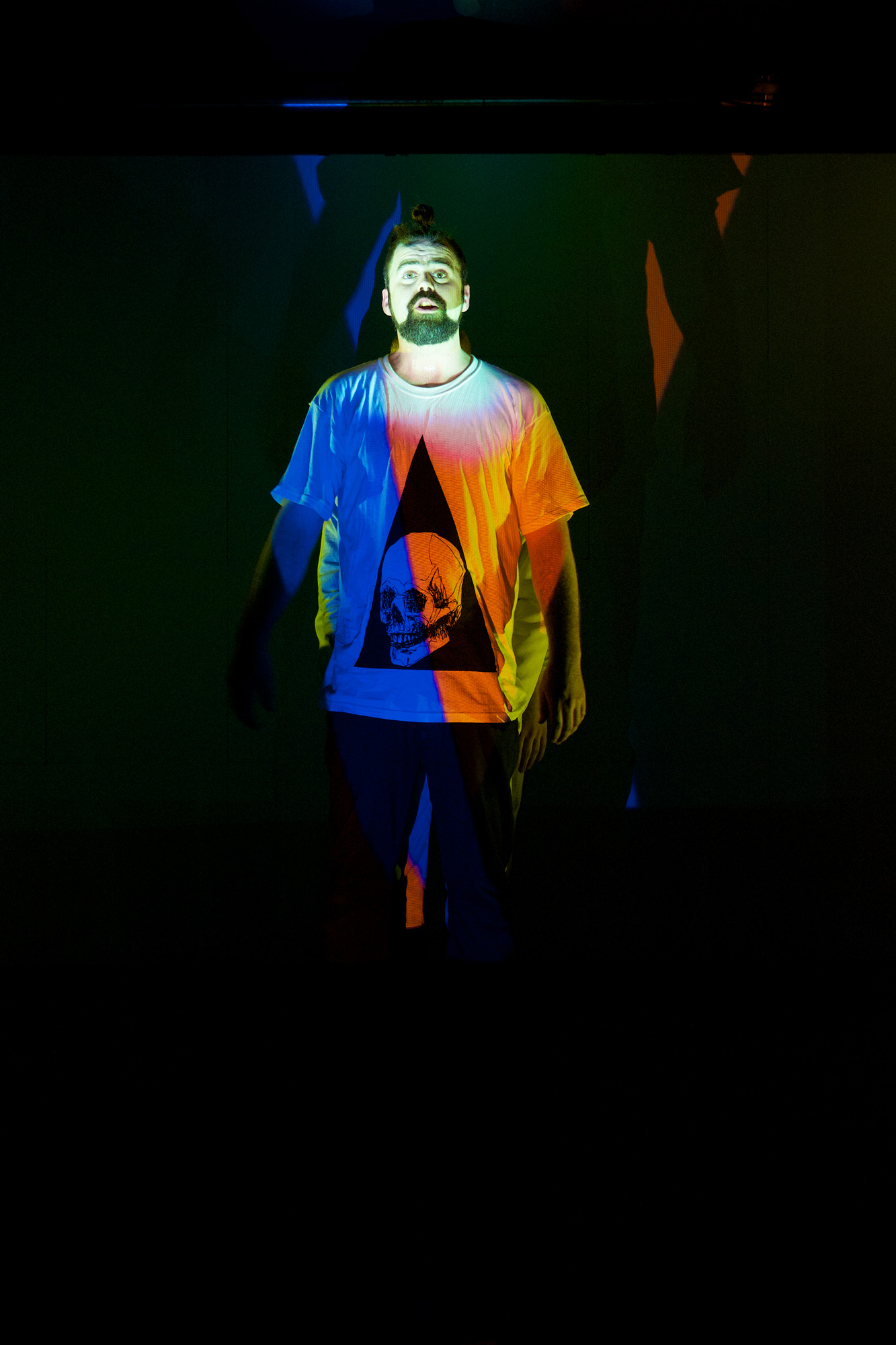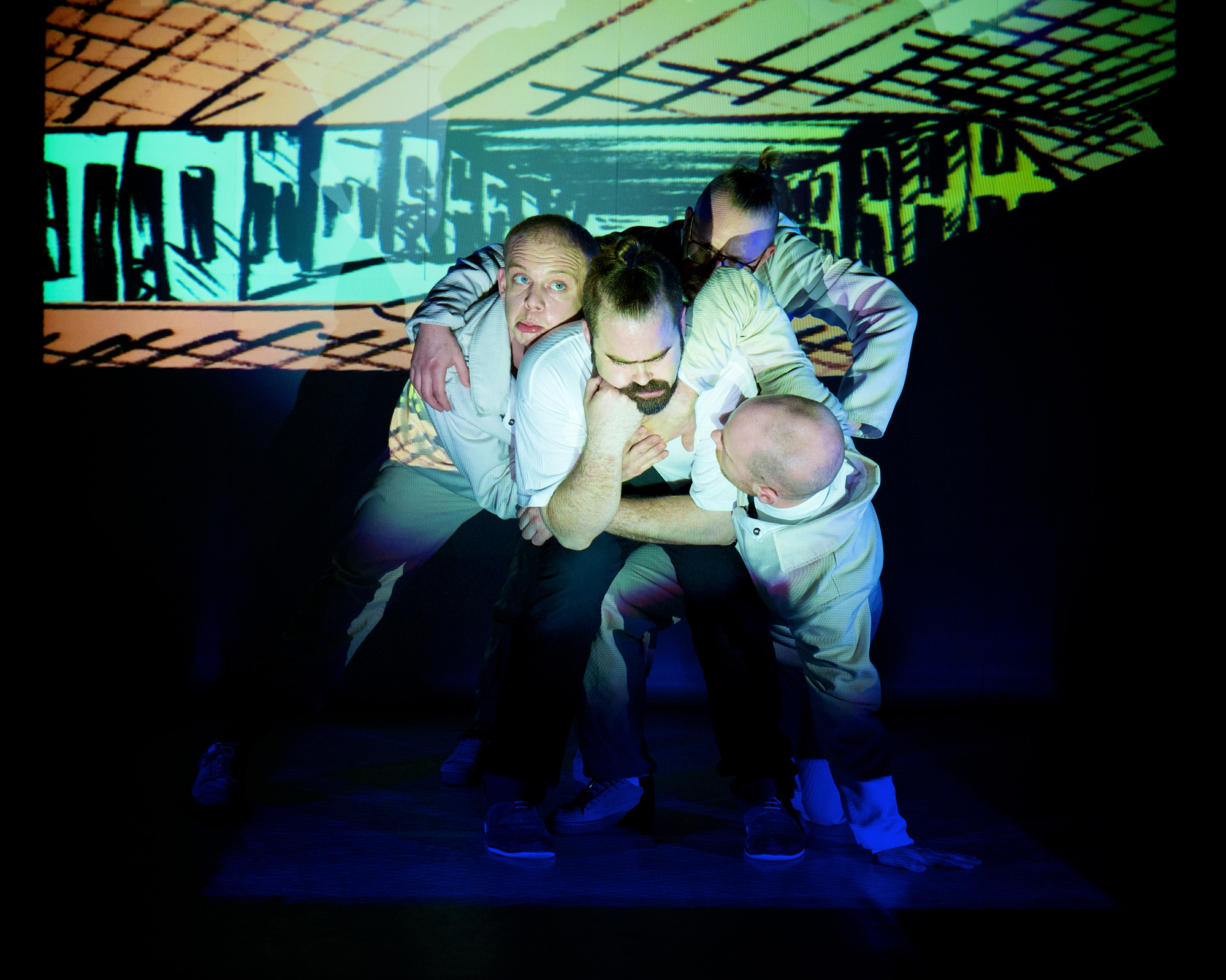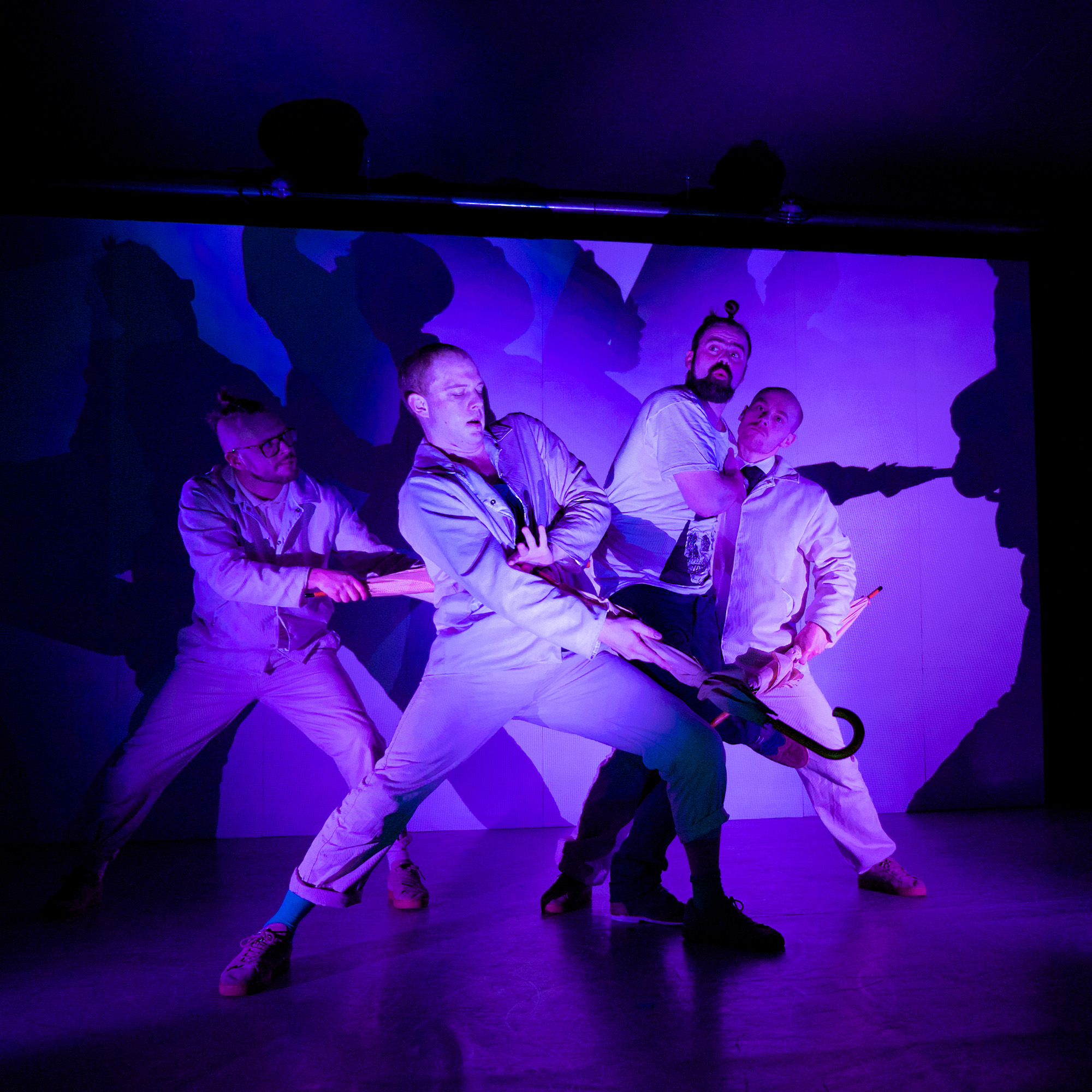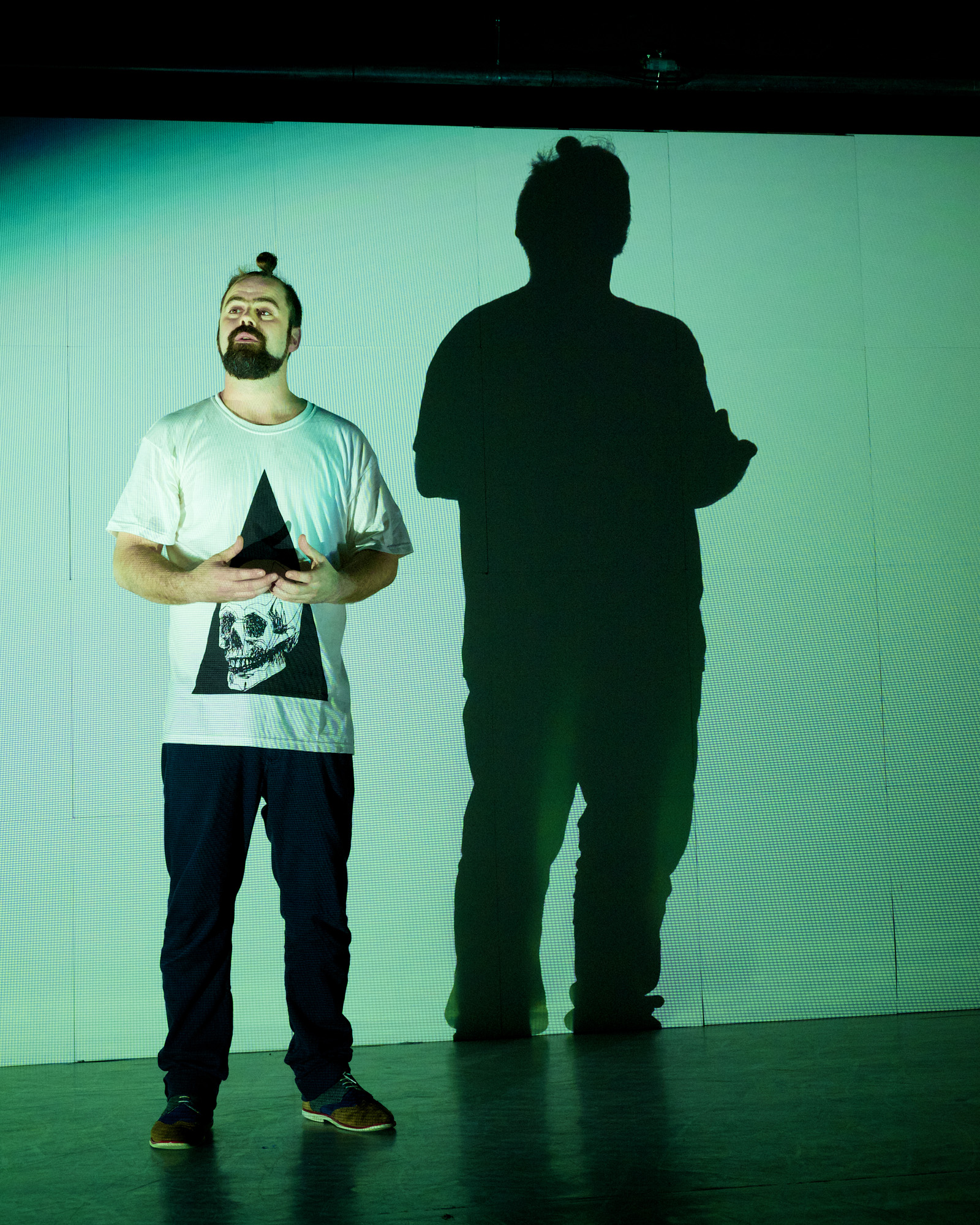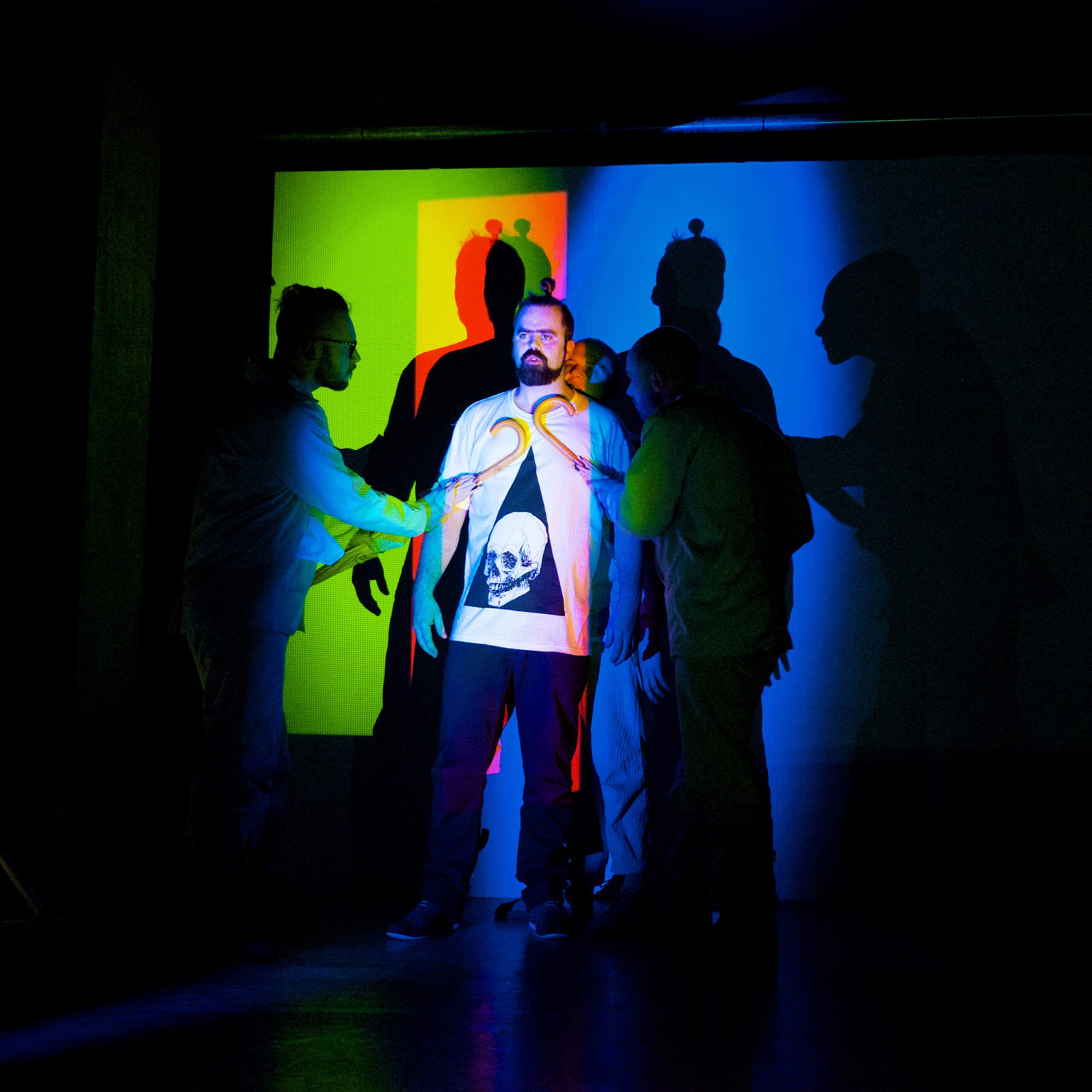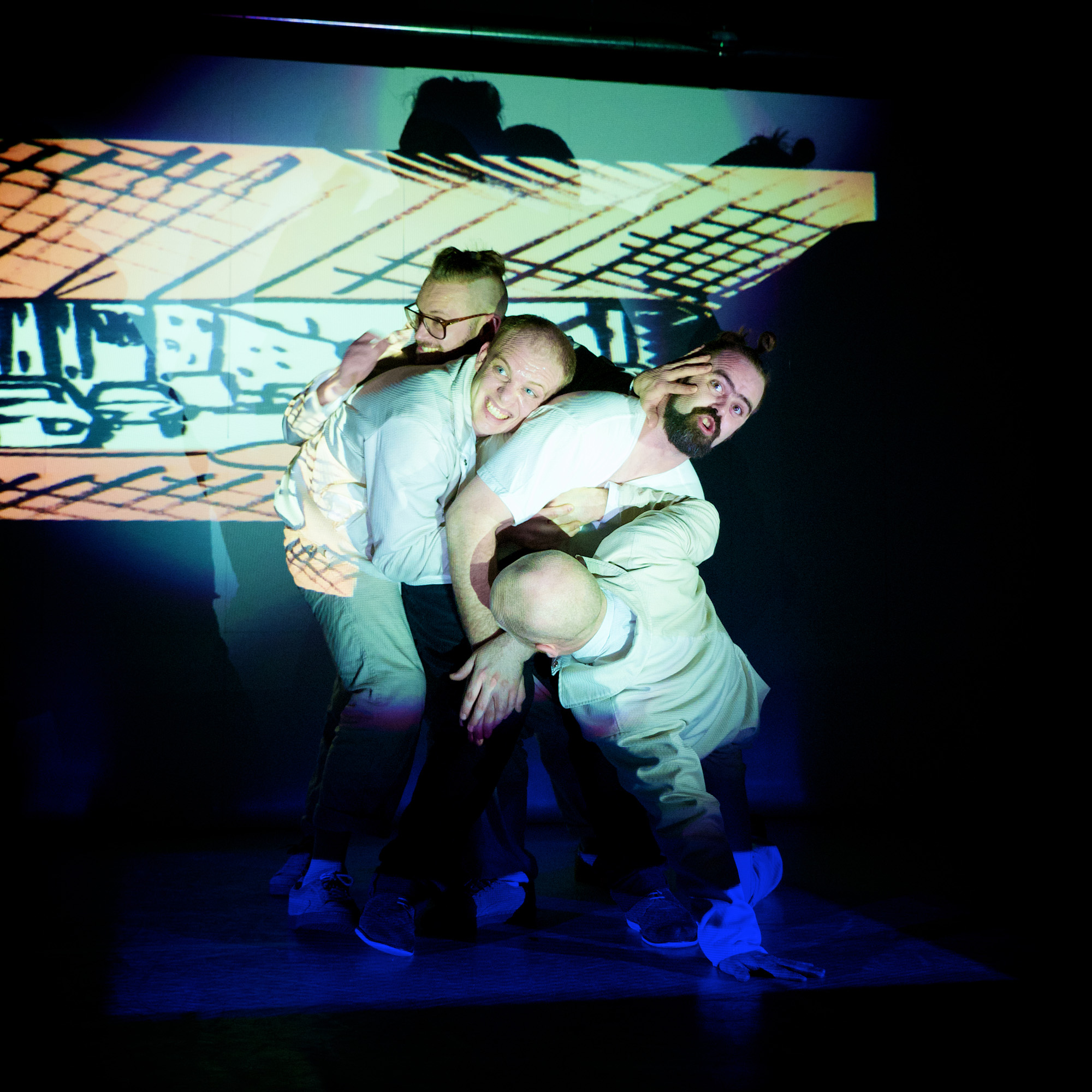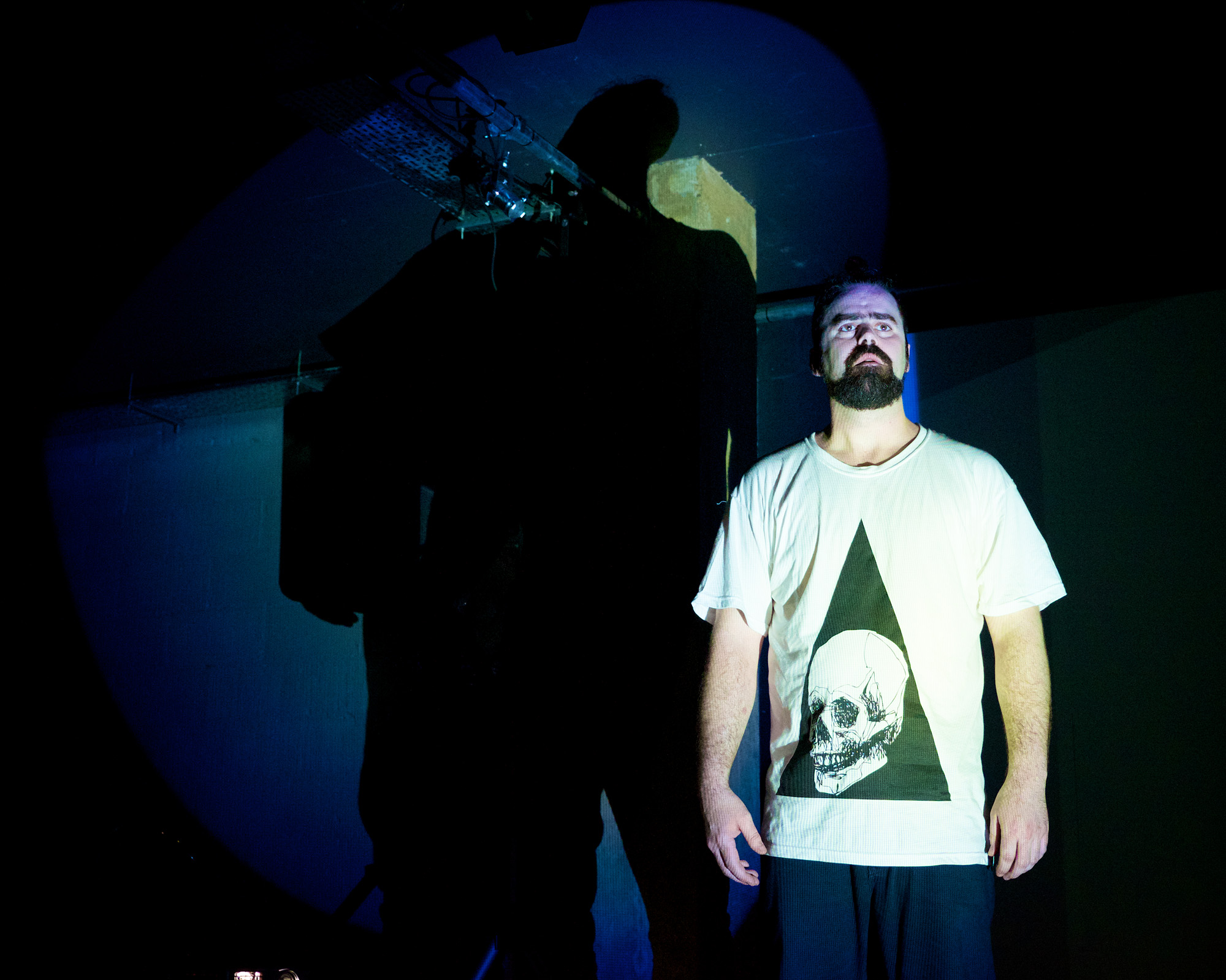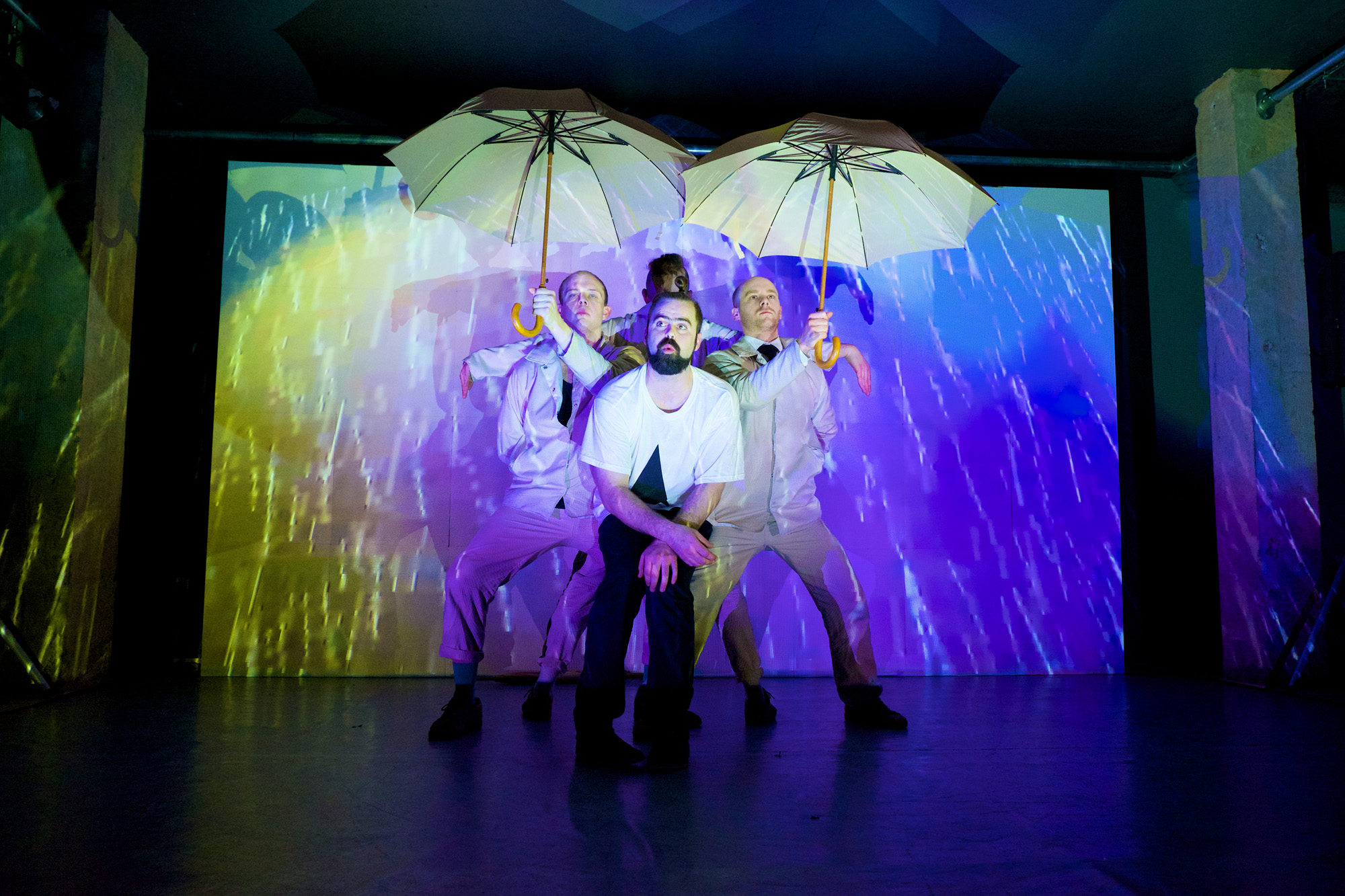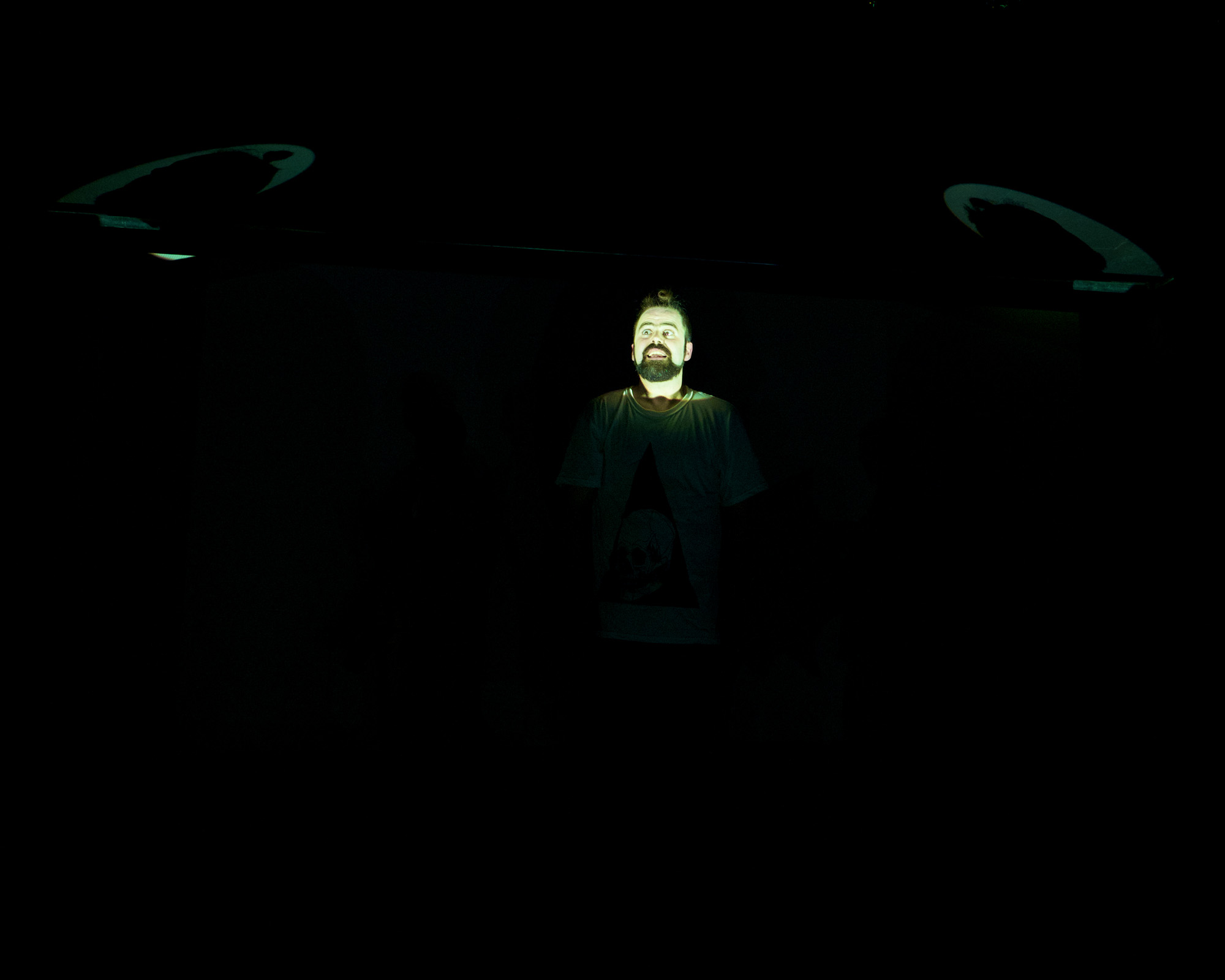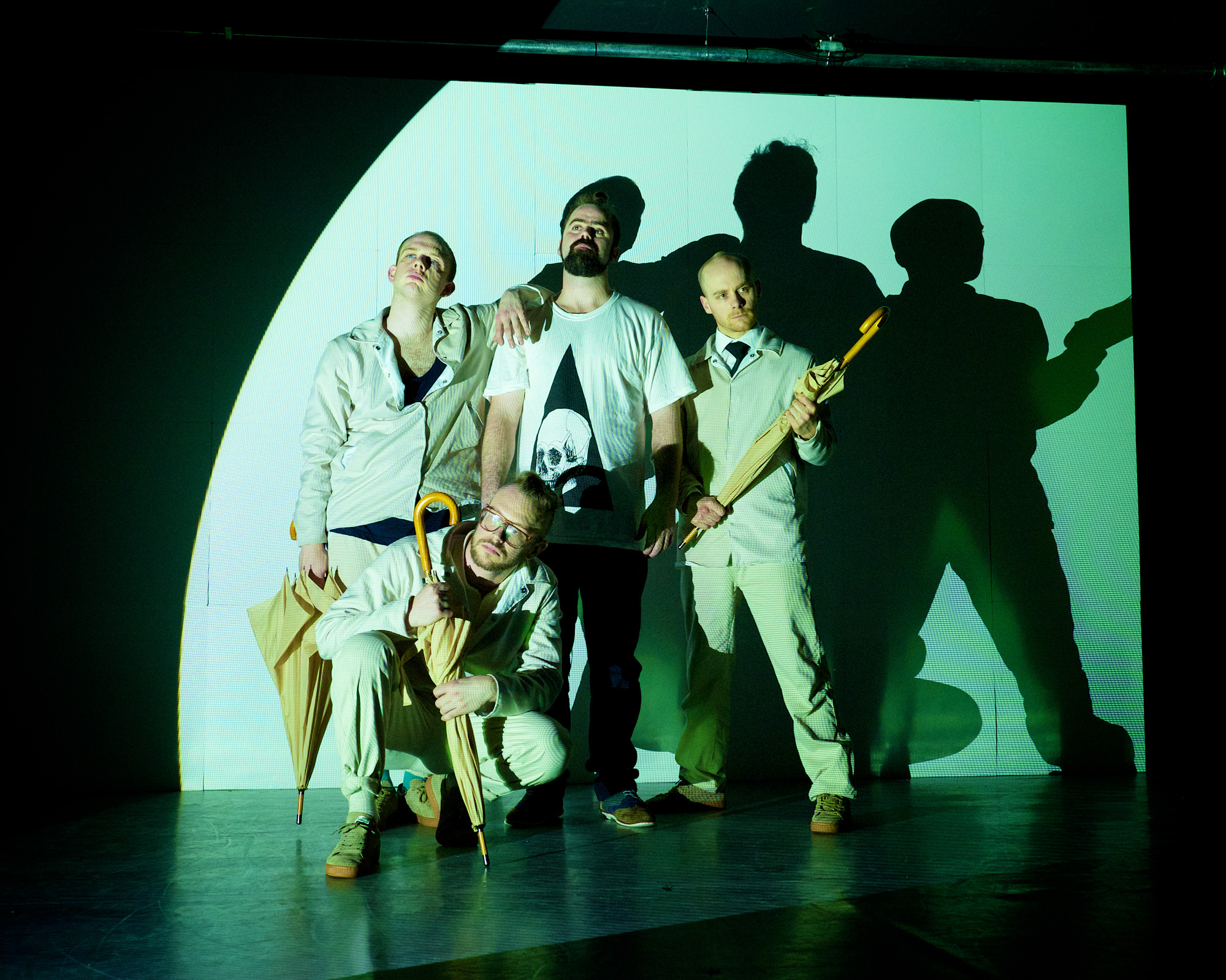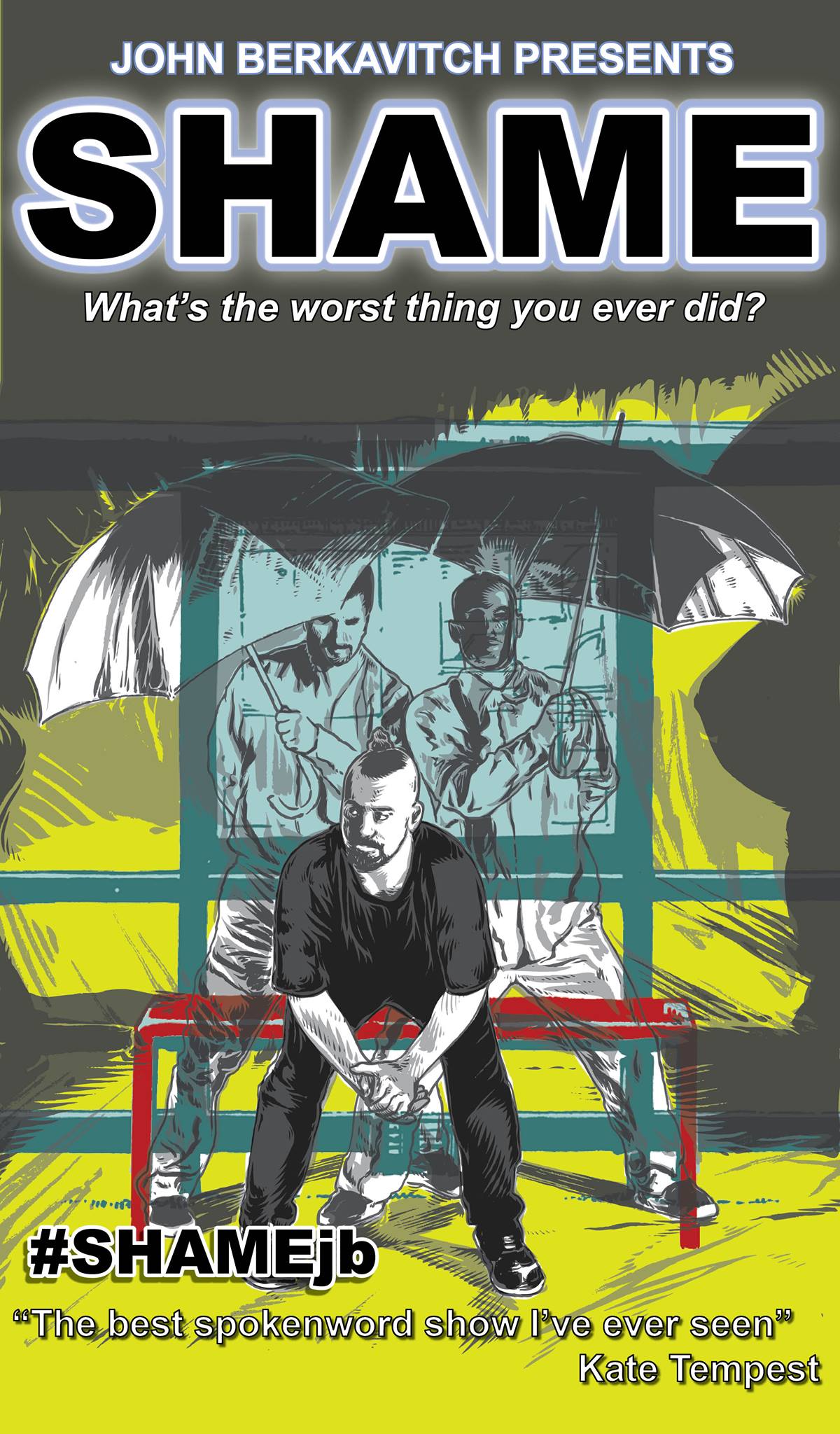In early 2013, the brief ‘scratch’ tour of John Berkavitch’s ambitious new show ‘Shame’ generated a wealth of enthusiastic reactions and outspoken praise, including a declaration from trailblazing writer/performer Kate Tempest that it was, “the best spoken-word show I’ve ever seen!”. Even though it was largely in its infancy and running at only half of its final length, this genre-blending trial production had undoubtedly shown great promise.
This early potential has since been heartily nurtured, re-emerging now in its final form at South London’s cultural breeding ground, Battersea Arts Centre (BAC), before embarking on a national tour.
Whilst written and headlined by John Berkavitch, the 70-minute production is the result of a truly collaborative melting pot that draws upon a diverse range of talents, culminating in an arrestingly unique experience. Whether the soundscapes of MOBO-nominee Jamie Woon and his collaborative partner Royce Wood Jr, the linguistic influence of Steven ‘Polarbear’ Camden or the dance, theatre and special effects experts who helped craft the truly innovative impact of the show, Shame’s creative chain is forged of strong links.
With anticipation having bubbled for many months, the impressive architecture of BAC’s foyer served as an ornate backdrop upon which a modest but highly animated gathering of punters milled excitedly towards their seats.
The show commenced against a blinding, white backdrop as part of a deliberately underwhelming introduction for the highly expectant London crowd, though this low-key pretence soon gave way to an explosion of colourful projections, vibrant movement and slick lyricism. Fascinating visually, the dark psychological nature of the content was equally compelling. There was a refreshing novelty to be found in the murky depths of Berkavitch’s emotional evisceration, and an uneasy pleasure in the honest introspection prompted by the show. With one’s reactions snaking between arms-length schadenfreude and a reluctant familiarity, watching Berkavitch’s most shameful moments being re-lived on stage was an experience imbued with a transfixing gravity.
The jumping narrative, which rotated through a series of tales and timelines, required the flawed protagonist to embody various past instances of himself, as well as some relevant supporting characters. This was achieved impressively well, with a dramatic range that portrayed everyone from bombastic, one-dimensional kids through to knowingly nuanced adults. Accompanied by an emotive score that greased the wheels of the action and cranked the tension, the poetic monologues unfolded effortlessly, drawing from an impressive reservoir of jarringly visceral description and silky rhyme.
Accompanied by a trio of break-dancers, Berkavitch’s on-stage quartet blurred the lines between dance, staging and storytelling as they interwove their bodies to creative mesmerising, organic scenery. The brilliant scope of their movement and the sheer personality it conveyed was a joy to watch, whilst Berkavitch’s seamless interaction with this shape-shifting, dynamic world only enhanced their impact further.
As well as the jaw-dropping moments of physical ingenuity that punctuated the show, the B-Boys added great texture to the storytelling through their expressive physicality, amusing interactions and reactive emotional context.
Whilst the multiple narrative threads began frayed by design, they concluded cohesively to bookend the show and re-contextualise some of the previous, at times seemingly errant chapters. Though perhaps lacking in structural signposts as it unfolded, each constituent segment was a standalone triumph of inventive storytelling, performed with enthused commitment by Berkavitch, who embodied each particular scene as if granting a window into his past. Loaded with endearingly relatable frames of reference, whether the battle-scarred hand-me-down jeans he described from his childhood or the social minutia he mimicked during a fourth-wall-breaking skit, his words consistently struck chords with their empathetic, everyman quality, whilst raising smiles with their enjoyable quirkiness.
Though risking an ambitious blend of technologies, art forms and ideas, John Berkavitch’s Shame managed to deliver an enjoyably dark, commendably compelling experience in the most innovative fashion one could think of. Whilst the overarching structure seemed to blur slightly in the middle, the content was consistently spellbinding, emotionally stirring and undoubtedly cool to watch.
A sensory overload of inspiring creativity, Shame leapfrogged the ‘jack of all trades’ pitfalls that threaten to derail such projects and instead successfully achieved something that people will fondly remember, wholeheartedly recommend and likely want to watch again.
Article Photography and Gallery Ilustrations: Berkavitch.com
Gallery Photography: © Jerome Whittingham (@photomoments)
For more info and to book tickets for 'Shame' on its UK tour, visit: Berkavitch.com
